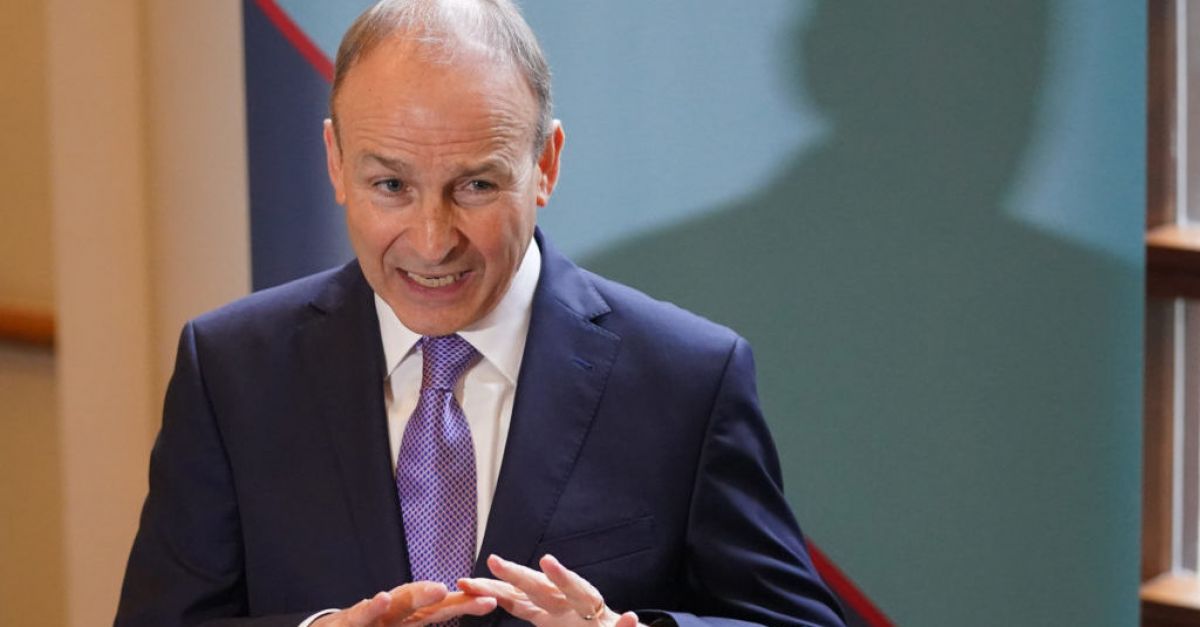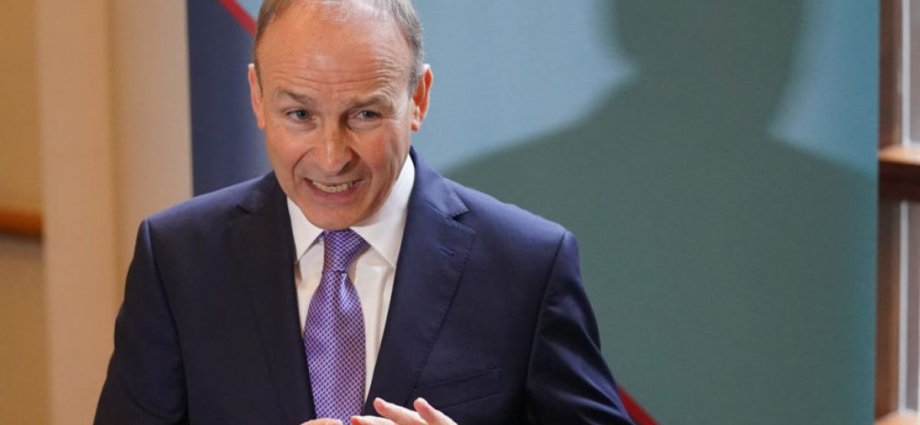
Taoiseach Micheál Martin has defended his Government’s plan to continue with the relocation of the National Maternity Hospital (NMH) to land owned by the Sisters of Charity religious order, saying the agreement effectively amounts to public ownership.
The planned relocation of the hospital from Dublin’s Holles Street to a site at Elm Park alongside St Vincent’s Hospital, as well as its governance and ownership, has been the subject of controversy for some time.
The issue came before Cabinet this week, but has been postponed for two weeks to allow for documents about the ownership structure to be published and for Minister for Health Stephen Donnelly to appear before a committee.
Acknowledging there had been “legitimate” concerns about whether women would have access to healthcare services like abortion, gender-affirming surgery and tubal ligation at the new site, Mr Martin told TDs on Wednesday that the issues have now “comprehensively guaranteed in the constitution of the new hospital”.
Advertisement
Addressing the Taoiseach at Leaders’ Questions, Sinn Féin leader Mary Lou McDonald said the state should own the hospital grounds “outright”.
“We will own the building and not the land, which will remain in private ownership and that makes absolutely no sense when the state is footing the bill,” Ms McDonald said.
Mr Martin accepted that “legitimate concerns” have been raised about governance, but added that they had been “comprehensively addressed”.
“Not via rhetoric, but with legal guarantees and documents which have been published. I implore you to read them.”
He said the debate has moved on from clinical governance and operational independence to ownership of the hospital.
“It’s now 300-year lease at a tenner a year. That’s what the agreement says. And to me, that is public ownership.”
Labour Leader Ivana Bacik raised concerns about the “labyrinthine” legal arrangements underpinning the ownership structure of the new building.
“We know that this state has an unfortunate and tragic, terrible legacy of failing women in our access to reproductive healthcare,” Ms Bacik said.
Earlier on Wednesday, Mr Donnelly said he would appear before the Health Committee next week to address any concerns about the hospital before the matter comes before Cabinet again in two weeks.
Advertisement
Asked whether an abortion in any circumstances was allowed under Irish law, and whether tubal ligation would be carried out according to a woman’s choice rather than clinical need at the new hospital site, Mr Donnelly told RTÉ Radio on Wednesday morning: “Yes absolutely, 100 per cent.
“Every service that is provided for under law will be available in the National Maternity Hospital. And not only is the independence fully protected, but the hospital will be obliged to provide these services, it’s in the constitution, and it’ll be in their operating licence.”
Ms Bacik said earlier on Wednesday that there were “still very serious and very valid concerns remaining around the ownership, control and governance of the new National Maternity Hospital”.
She said Mr Donnelly had not answered why “we can’t have a publicly owned hospital on public land” instead of the “byzantine” legal arrangements outlined by the minister.
The 299-year lease will give the Irish state a proprietary interest in the land, with the HSE leasing the site for the hospital from St Vincent’s and owning the hospital itself.
Under the constitution of the new hospital, the Minister for Health will not have day-to-day involvement but will have a so-called “golden share” in the company, allowing intervention to direct the board to ensure all maternity, gynaecological or neonatal care is provided if it proves necessary.
Advertisement
But Ms Bacik told RTÉ Radio the question of land ownership is not a “red herring”, as Mr Donnelly had claimed earlier on Wednesday.
Video news
Live: Holohan and Watt face questions, maternity h…
She said: “I think there are serious questions around control and governance.
“If the lease is to be so long, why not hand the land over to the state?
“If one looks at the documents that have been published, they still raise questions over the governance issue.”











